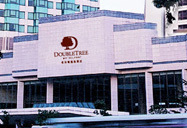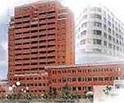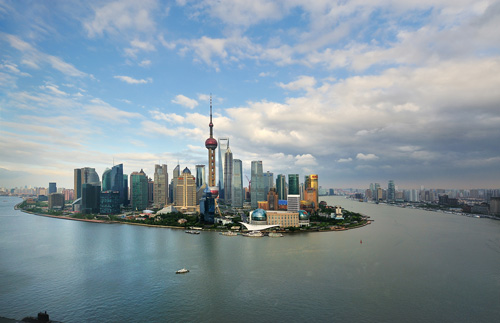Shanghai pioneers new liberalization
|
|||||||||
( China Daily )
Updated: 2013-09-13
City's pilot free trade area welcomed as next stage in China's opening-up, but with caveats
During his landmark southern tour in 1992, Deng Xiaoping, lauded as the architect of China's reform and opening-up, admitted he had made an unwise decision in not making Shanghai one of the first special economic zones during the early 1980s.
Because of this, Shanghai, as well as the neighboring Yangtze River Delta, missed an opportunity to lead the country's economic evolution.
However, in the 16 years since Deng passed away, the city appears to have the chance of pioneering China's next phase of opening-up and reform.
Recently, the State Council, the country's cabinet, approved the establishment of the Shanghai Free Trade Area, where several laws regulating foreign investment and trade would not be applied.
The Shanghai FTA, brainchild of Premier Li Keqiang, will eventually become a place where foreign trade, investment and capital can freely flow in and out.
Clearly, Li wants the FTA to be an "experimental field" for the country's economic future, just as Shenzhen was in the 1980s.
China joining the World Trade Organization in 2001 remained the last major breakthrough in the country's opening-up. Since then, its foreign trade systems have been overhauled fundamentally. It increasingly embraced open and free trade to help it become the world's largest trader and exporter, with foreign trade at one point accounting for more than a third of its GDP.
But reforms to foreign investment and financial systems failed to advance as much, as authorities held on to managing, if not restricting, foreign investment and financial operations, instead of liberalizing and serving them.
China's top policymakers have realized the country's economic reforms have been short on progress, and are keen to make some changes by selecting Shanghai as a pilot and pioneer.
Despite being named a free trade area, any breakthroughs achieved within the Shanghai zone will be basically associated with investment and finance. They will include a negative-list practice for foreign investment, full convertibility of the yuan and full interest rate liberalization for banks. In the area, the government will not have a big say in the operation of business.
These are all reforms that should have taken place in the past decade but were delayed.
Since foreign trade has lost its luster in fueling economic growth, and stimulus packages have had many harmful side effects that have been hard to clear, China urgently needs to find a new and more quality-oriented growth engine.
The services industry and the consumer market are expected to be the next big things. But their development requires a significance liberalization of investment and financial regimes, similar to how the liberalization of policies boosted foreign trade.
The Shanghai FTA is part of the new liberalization, its essence being to let market forces replace government will. This is a continuation of Li's economic philosophy of "big market and small government".
By making these reforms, the FTA will be a business-friendly place that embraces an advanced policy regime similar to that of the United States and the European Union. Optimists believe the area can enjoy the same level of economic freedom as Hong Kong, undoubtedly the world's freest economy.
It's no wonder that many economists, foreign and Chinese, have lauded and pinned high hopes on the Shanghai FTA, which they say will be a textbook example for China's policy regime for the next decade. The market reacted positively to the news, with Shanghai FTA-concept stocks, such as China Eastern Airlines and Shanghai International Port Group, rising for a few days after the government approved the establishment of the FTA in late August.
If Shanghai's experience proves effective, it may soon be followed by other places such as Tianjin and Fujian in shaping the new investment and financial systems that will eventually be promoted nationwide.
With the success of the FTA, Shanghai will become a real regional and even international financial hub and have its name embossed on China's economic history.
But policymakers must be aware of a few problems if this experiment is to achieve the goals they expect.
First, regulators must keep an eye on arbitrage.
As trade, investment, exchange and rate barriers are pulled down, the FTA will have policy advantages over other places in China. More likely than not, there will be two sets of interest rates, two sets of exchange rates and two sets of tax rates for within and outside the Shanghai FTA area.
Profiteers and speculators will take advantage of these differences to make quick gains. In the most recent cases, arbitragers displayed their ability to maneuver large sums of money due to the differences between onshore and offshore yuan and those between trade policies for inside and outside bonded areas. These operations were massive enough to distort China's foreign trade figures in March and April this year.
The Shanghai FTA will be a hotbed for arbitragers if business operations and capital flows are not strictly scrutinized.
How to regulate and supervise goods and money flows in a totally free regime is a challenge for policymakers. How to strike a balance between the free economy and due supervision remains another.
Secondly, rent seeking and corruption must be prevented.
On the surface, government power, regarding approval and administrative rights, is reduced and the authority will simply register entities and projects.
As greater freedom, lower taxes and fewer capital controls are the selling points of the Shanghai FTA, companies will be more than glad to set up operations in the area. All sorts of businesses, especially traders, logistics companies and financial institutions, will vie to have a presence there.
But space is limited, and a seat in the FTA will become a scarce resource. Government officials will have the power to decide who can come and who can stay.
Therefore, their power must be checked to prevent possible corruption.
Thirdly, the involvement of private and small enterprises must not be neglected.
The Shanghai FTA must be open to more of them to rectify the practice of state-owned giants and international conglomerates becoming dominant players of major economic pilot programs.
The practice of the Shanghai FTA will be eventually promoted nationwide. It will be good to let private and small businesses be involved at the trial stage so that problems can be found and solved earlier.
As a simple gesture to showcase the authority's support for these companies, it is suggested that a private bank be allowed a place in the FTA.
The authors are financial analysts in Shanghai. The views do not necessarily reflect those of China Daily.

(China Daily Africa Weekly 09/13/2013 page11)






